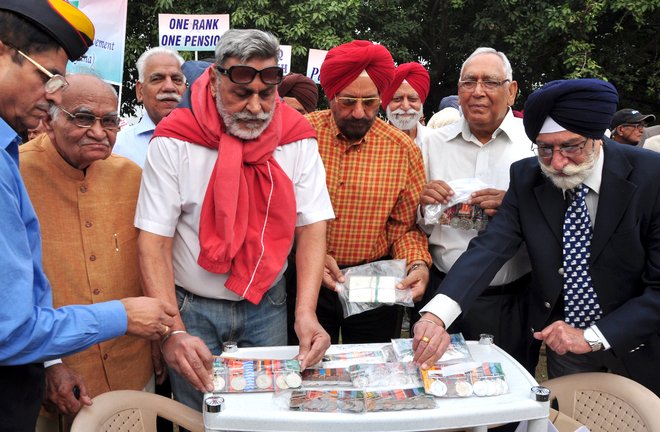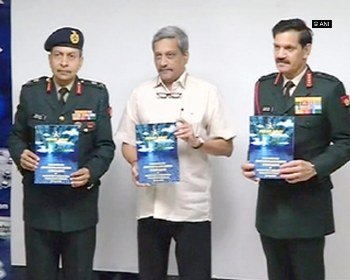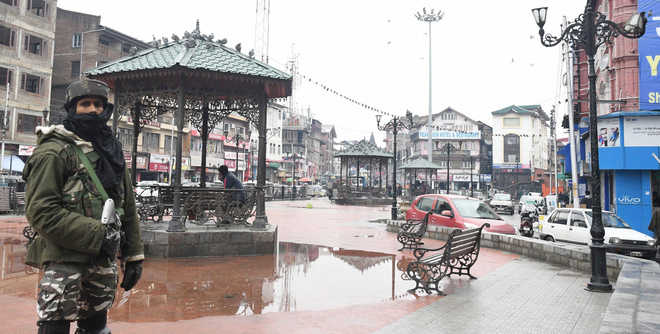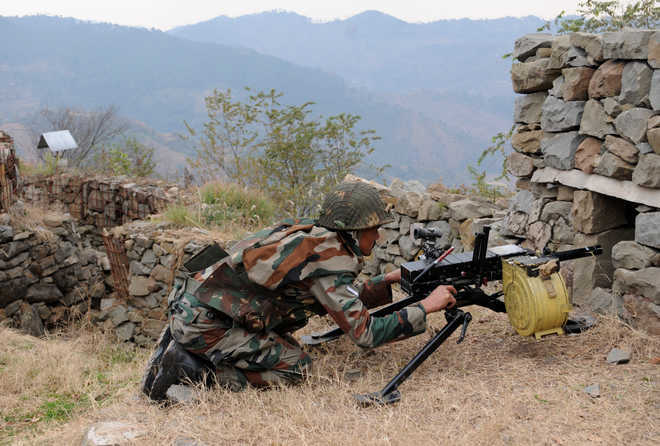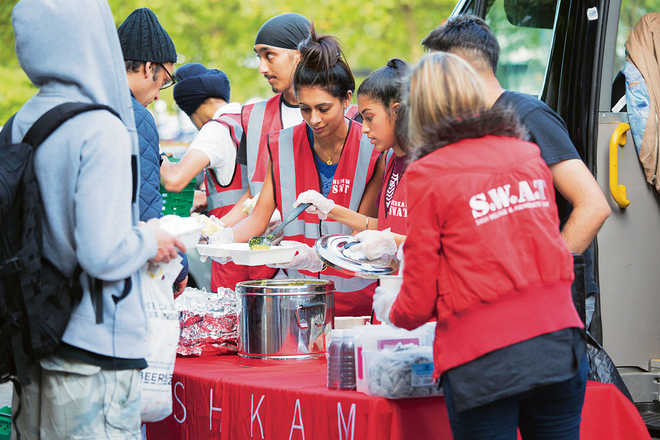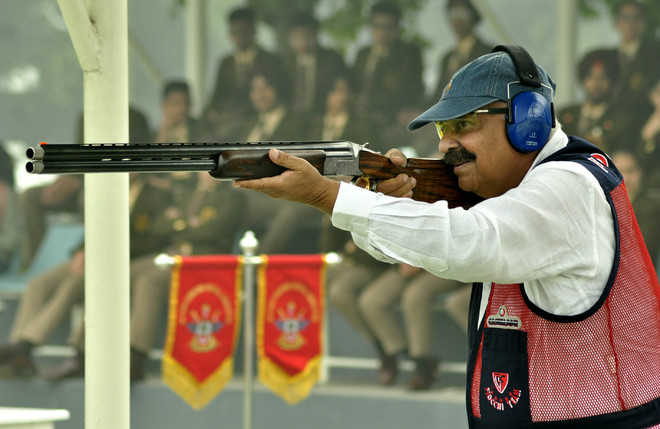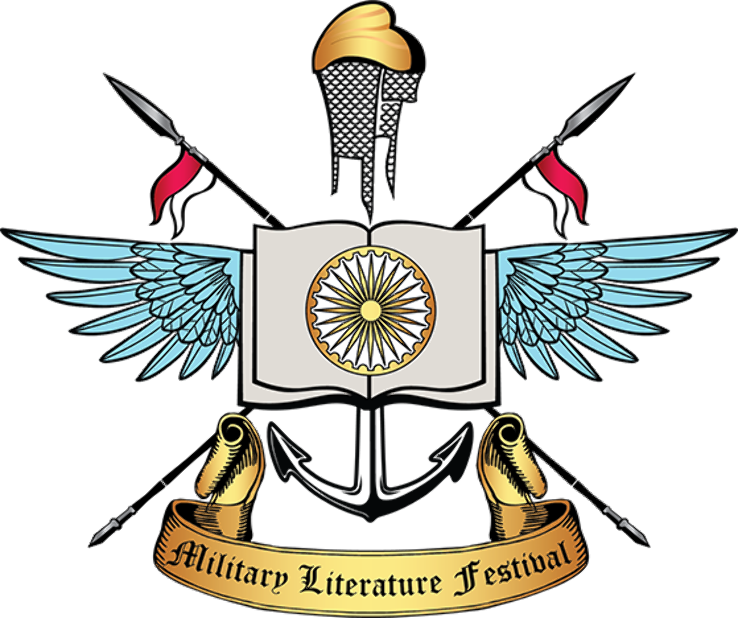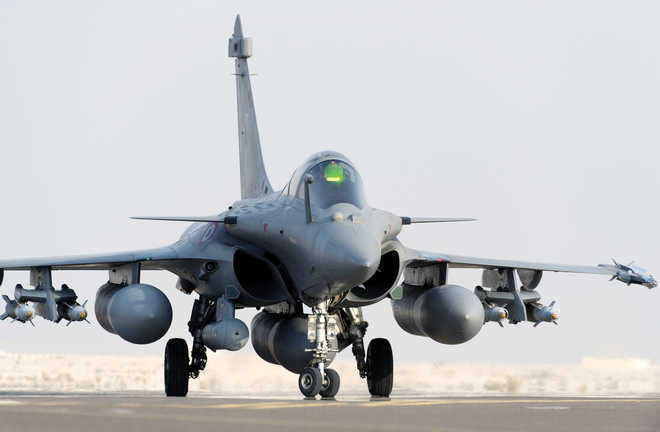 The apex court dismissed pleas seeking review of its clean chit to the government in the deal.
The apex court dismissed pleas seeking review of its clean chit to the government in the deal.New Delhi, November 14
The Supreme Court on Thursday dismissed the review petitions against its verdict in the Rafale deal on grounds that they lacked merit, reiterating its clean chit to the Modi government in the fighter jet agreement with French firm Dassault Aviation.
The apex court also rejected the contention that there was need to register an FIR in connection with the Rs 58,000 crore deal.
The pleas had sought re-examination of the apex court’s December 14, 2018 verdict that there was no occasion to doubt the decision-making process in the procurement of 36 Rafale fighter jets.
“We find the review petitions are without any merit,” a bench comprising Chief Justice Ranjan Gogoi and Justices SK Kaul and KM Joseph said.
The rejection of review petitions is tantamount to the apex court giving a second clean chit to the Modi government.
Reading out the judgment, Justice Kaul said the judges had reached the conclusion that it is not appropriate to order a roving inquiry into the allegations.
Maintaining that the review petitions had sought the registration of an FIR in connection with Rafale fighter jets deal, the bench said, “We do not consider it to be a fair submission.”
“We do not find it appropriate to consider passing order for registration of FIR,” the bench said.
Justice Joseph, who wrote a separate judgment, said he agreed with the main verdict written by Justice Kaul subject to certain aspects on which he had given his own reasons.
In December last year, the apex court had dismissed the petitions seeking an investigation into the alleged irregularities in the deal.
On May 10, the apex court reserved its decision on the pleas, including one filed by former Union ministers Yashwant Sinha and Arun Shourie and activist lawyer Prashant Bhushan, seeking a re-examination of its findings.
The review petitions were filed by the trio, lawyer Vineet Dhandha and Aam Aadmi Party lawmaker Sanjay Singh.
While reserving the judgment on the review petitions, the apex court asked the Centre searching questions on its deal with France to buy 36 Rafale fighter jets on issues like “waiver of sovereign guarantee” and the absence of technology transfer clause in the inter-governmental agreement (IGA).
The bench referred to an earlier judgment, which said an FIR is a must when information revealed commission of cognizable offence.
Attorney General KK Venugopal had told the bench that “there has to be a prima facie case, otherwise they (agencies) cannot proceed. The information must disclose commission of cognizable offence”.
Justice Joseph had referred to the earlier deal and asked the Centre why the IGA on Rafale with the French administration did not have the clause of transfer of technology.
“The court cannot decide such technical aspects,” Venugopal said in response. PTI
Rahul Gandhi calls for probe by JPC after SC verdict on Rafale
Tribune News Service
New Delhi, November 14
The Congress on Thursday rejected BJP’s criticism on the Supreme Court verdict on Rafale and sought a probe into the jet purchase from France.
Former Congress president Rahul Gandhi tweeted after the verdict and sought a joint parliamentary committee probe into the deal.
Justice Joseph of the Supreme Court has opened a huge door into investigation of the RAFALE scam.
An investigation must now begin in full earnest. A Joint Parliamentary Committee (JPC) must also be set up to probe this scam. #
The Congress said the Supreme Court expressed limitations in probing the deal and also observed that nothing stops the police to investigate a cognisable offense.
Rahul Gandhi tweeted today, “Justice Joseph of the Supreme Court has opened a huge door into investigation of the RAFALE scam. An investigation must now begin in full earnest. A Joint Parliamentary Committee (JPC) must also be set up to probe this scam. #BJPLiesOnRafale.”
The Congress made it clear that it would raise the matter in the upcoming winter session of Parliament. Congress media head Randeep Surjewala meanwhile said the party stood vindicated on its stand in the matter and the court had left a room open for a probe.
“It is now up to the government to take this investigation into Rafale forward,” Surjewala said
No probe in Rafale deal: SC dismisses review plea
HT Correspondents
letters@hindustantimes.com
New Delhi : The Supreme Court on Thursday refused to review its 2018 order that dismissed pleas seeking a court-monitored probe of alleged irregularities in the ₹59,000 crore Rafale fighter jet deal, reiterating its earlier decision that it was not for the court to determine the price at which aircraft are bought — a move the government said vindicated its stand.
“Supreme Court’s decision to dismiss the review petition on Rafale is a befitting reply to those leaders and parties who rely on malicious and baseless campaigns.Today’s decision, yet again, reaffirms Modi sarkar’s credentials as a govt which is transparent and corruption free,” home minister and Bharatiya Janata Party president Amit Shah tweeted.
In a unanimous verdict — written by justice SK Kaul for himself and Chief Justice of India Ranjan Gogoi, and a separate concurrent judgment by KM Joseph — the court said that unless there was an error on record, review applications did not need to be entertained. The judges also corrected an “error” in its December 14, 2018 judgment.
“We cannot lose sight of the fact that we are dealing with a contract for aircrafts, which was pending before different Governments for quite some time and the necessity for those aircrafts has never been in dispute,” the court said in the verdict by justices Kaul and Gogoi, refusing to embark on a “roving and fishing enquiry”. “We are, thus, of the view that the review petitions are without any merit and are accordingly dismissed.”
In his concurring judgment, justice Joseph said that the verdict would not stand in the way of the CBI taking action in the case on its own, after getting the necessary permissions from the government in accordance with the law. He, however, noted that under Section 17A of the Prevention of Corruption Act, prior approval of investigation is required, and according to the apex court’s judgment in the 2013 Lalita Kumari case, FIR in corruption cases have to be registered after a preliminary inquiry if the information is unclear about a cognizable offence. Such an inquiry was not asked for in the petitions.
The Congress claimed that Joseph’s observation paved the way for a “comprehensive criminal investigation” into the case and called for a Joint Parliamentary Committee probe. “Justice Joseph of the Supreme Court has opened a huge door into investigation of the Rafale scam. An investigation must now begin in full earnest. A JPC must also be set up to probe this scam,” Gandhi tweeted.


















































